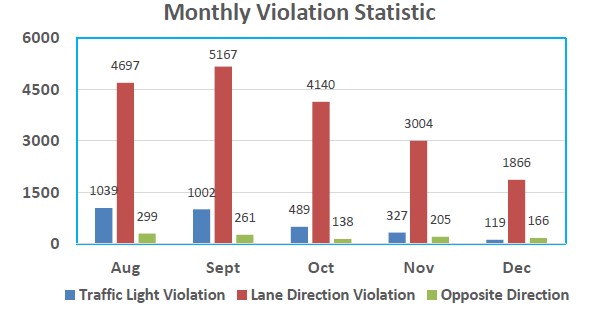Providing a Secure and Efficient Traffic Environment for Yanbu, Saudi Arabia, with Huawei’s ITMS
Yanbu, located in Medina province in western Saudi Arabia, is a large port city on the coast of the Red Sea, with an area of approximately 606 square kilometers and a population of roughly 240,000. It is home to the third largest refining center in the world with an economy that is dominated by petroleum and petrochemical related industries.

Even though the city has a relatively small population and traffic conditions free from congestion, traffic violations — ranging from speeding to running red lights and lane infractions — nonetheless plague the city, increasing the risk of serious accidents and impacting wider public safety.
Yanbu only had a few video security cameras and only at major intersections. And what cameras the city did have, they could only take still photographs, lacking the ability to record videos let alone recognize then search for license plates. As such then, the Royal Commission Security & Safety Department struggled to identify, track, and discover those responsible for breaking the laws of the road, severely limiting the Department’s ability to enforce those very laws.
Collaborating with Huawei, Yanbu successfully deployed an Intelligent Traffic Management Solution (ITMS). e-Police facilities were deployed at 16 major intersections, with a total of 256 HD cameras installed, greatly improving the quality and quantity of video evidence.
Today, the city’s system uses Artificial Intelligence (AI) algorithms to automatically identify traffic violations, including running red lights, lane crossing, reverse driving, and lane marking infractions. It enables video search by license plate number and structured vehicle data (such as the color of a vehicle and its brand), analyzes and tracks the vehicle that caused an accident in real-time, and supports blacklist alerts.
Following the launch of the ITMS, the Yanbu traffic law enforcement department has been able to use e-Police and checkpoints to automatically identify traffic violations in real-time, making full use of HD photos and videos as evidence. Traffic violation processing capability and efficiency have been significantly enhanced as a result, leading to fewer violations overall. Indeed, the number of traffic violations per month has been reduced from 5000 to 2000, representing a 60% drop.
Encouraged by the positive impact of first phase deployment, the Yanbu government is expanding the capacity of the second. Based on the e-Police system used at 16 intersections in that first phase, an additional ten e-Police sites will be added, increasing coverage density and ensuring a safer and more efficient traffic environment for the public overall.
